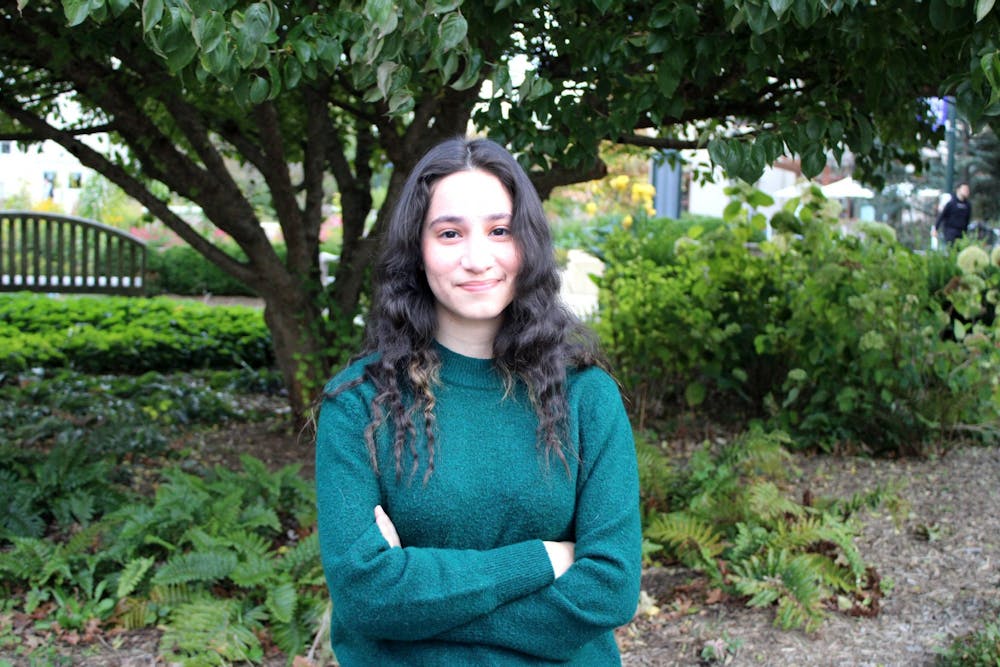Before I began attending American University, I was ecstatic to study at a school that so proudly claimed to condemn discrimination and advocate for its minority students. As a current sophomore and member of AU’s minority population, however, I have come to recognize that the prideful advocacy by the administration is often more performative than helpful. AU’s anti- discrimination policies and the Office of Equity and Title IX often fail to take action for students, as they shelve accountability and make empty promises to implement spaces for students of color.
On July 2, 2020, President Sylvia Burwell announced the creation of the Office of Equity and Title IX. The office was established in response to the changing socio-political state of the nation during the Black Lives Matter movement. Staff in the office have previous experience in civil rights and discrimination, which should certainly aid in their work at AU. However, this experience is less impactful, since little to no visible action is taken on campus. The little action taken, mostly in AU’s curriculum, is often improperly executed as well. AU is more than capable of making change and adhering to its policies but instead chooses to be performative.
The Office of Equity and Title IX reflects this choice as it does not follow through with its established purpose to “prevent and respond” to all forms of discrimination, harassment and sexual assault under federal law. So far this year, the Office of Equity and Title IX has remained silent for every occurrence of discrimination on campus, failing to meet its minimum standard. On Sept. 26, when a swastika was found in Anderson Hall, the office released no response or prevention resources. The same lack of response was observed when a student was sexually assaulted in Leonard Hall at the end of October. Additionally, as the office currently employs six individuals, two of which are strictly investigators, the office lacks sufficient employees to account for the entirety of AU’s population. This issue speaks to the apathy and choice of AU’s broader administration, as Burwell claims to implement on-campus resources but understaffs them. The understaffing of a critical resource is unacceptable, but it does not exempt the Office of Equity and Title IX from the bare necessity of actively responding.
Other members of AU’s administration, Peter Starr, Fanta Aw and Seth Grossman, have sent out emails about the Office of Equity and Title IX’s existing services. However, since these resources were in place at the time of the discrimination and assault and did not meet their goal of prevention, these email communications are insufficient. The office and administration now have a responsibility to make policy changes for student safety as well as invest in more active and emotionally helpful measures. Burwell’s announcement of the Community Working Group on Preventing and Responding to Harassment and Violence is a helpful measure in that it involves student input, but this does not absolve the administration of implementing more services and taking further action. If it falls short of true action, such as updated resources, seminars, self-defense and training, it would once more point to AU’s performative nature. The administration must make changes within itself and its policy, not merely deflect action back to the community.
AU’s curriculum contributes to these issues of apathy and inaction due to the lack of spaces and resources for minority students. AU Experience II, a requirement for freshmen, specifically reflects this as the University claims it details social, racial and economic issues as well as students’ own roles within them, but lacks proper execution. Within the course, Black and Hispanic students are offered affinity sections by advisors. I signed up to join a Hispanic affinity section for community and understanding in taking this course, as did other POC peers. However, the affinity sections were not created, and we were left without promised community. In my class, the other minority students and I were left answering the bulk of questions about race and were asked to relive our experiences with racism for our white peers’ edification.
Despite AU requiring formal education on race and claiming to create spaces for POC students, the education provided fails to meet that promise. When enrolling in classes, Eagle Service should notify students about affinity sections and diversity and equity courses. Without this communication, POC students cannot enroll in sections for their advocacy and community. If AU has any interest in upholding its statements of inclusivity and antiracism, the administration needs to provide for its POC students and communicate with the student body as a whole.
AU claims its services condemn discrimination and work towards established goals, yet fails to provide evidence of widespread action and administrative change. Until the administration and the Office of Equity and Title IX adapt their services and policies, student safety is unlikely to be accounted for. Minority students and those discriminated against deserve to be advocated for on campus; thus far, the administration is far from doing so.
Rebeca Samano is a sophomore in the School of Public Affairs and a staff columnist for The Eagle.





